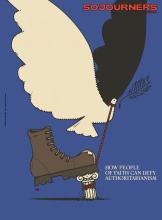MY FATHER TOOK his last breath on April 2, 2024, in his home in Southern California. My sister, my aunt, and I were present. He was 68.
Just days before, we were considering chemotherapy. But the illness had already swung into high gear, and his body shut down quickly. The day before my dad’s first chemo appointment, he died.
My dad was a complicated man who kept many secrets. He had written “Metastatic Stage IV Colon Cancer” in a notebook in mid-February, over a week before he told any of us how far the cancer had spread. In his final weeks, he began to relinquish independence and control, starting with giving me durable power of attorney over his affairs just an hour before he went into surgery to remove the tumor in his colon. Up until then, he didn’t want to sign the papers.
Read the Full Article

